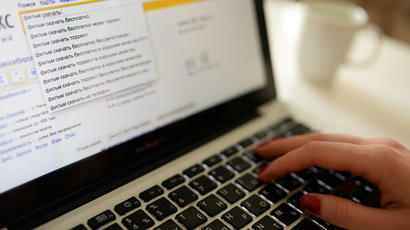State Watchdog threatens to block Twitter under new blogger bill

A senior official from Russian control agency Roskomnadzor says new restrictions would apply to all bloggers who write in Russian, even if they live abroad, adding that whole platforms can be blocked inside the country for refusal to cooperate.
The new law defines ‘popular bloggers’ as those having 3,000 or more visitors per day and demands that such people were registered under their real names and follow some basic rules similar to those mentioned in the Law on Mass Media – verify their reports and abstain from posting slander or anything that can be described as ethnic, religious or social hatred. The law must come into force on August 1 this year.
However, the law has no provisions connected with the global and trans-border nature of blogs and the internet as a whole. The document is not saying directly if it applies to cases in which both the authors of blogs and the blog platforms are based outside Russia.
Deputy head of Roskomnadzor Maksim Ksendzov said that this would not matter.
“The law is not tied to the territorial registration or passport data. If someone writes in Russian or any other language used by the peoples of the Russian Federation, if he or she is seeking to attract the Russian audience’s attention and if they use Russian sites for this, such people will have to observe the law,” the official said in an interview with popular daily Izvestia.
Ksendzov added that as the law offers no means to influence the foreign-based bloggers the Russian agency would most likely have to block the whole blog platform or social network in Russia, but only after they refuse to take down the illegal content. Roskomnadzor already practices such scheme as part of the enforcement of the federal law that bans the dissemination of terrorist and extremist information and also the federal law on protection of children.
The official said that major companies like Twitter and Facebook were still reluctant to cooperate, unlike Google that had been removing offensive and illegal videos from its YouTube portal for some time already.At the same time, the way Twitter was encoding its traffic would lead to complete blocking of the microblogging service on the Russian territory even after Roskomnadzor blocks only one tweet, he noted.
Ksendzov suggested in the interview Twitter’s objectives in Russia were not only commercial, but also political and this was the reason of the uncooperativeness.
“Twitter is a global tool for distribution of political information. When they interact with us they use the audience as a means for reaching their goals. At the same time the value users and their interests for the company is extremely low,” the head of the Russian watchdog said.
“By gradually refusing to comply with our demands they are deliberately creating the conditions in which the blocking of this resource on our country’s territory becomes practically inevitable,” Ksendzov complained.
Following the release of the interview senator Ruslan Gattarov also blasted Twitter’s uncooperativeness at a Friday session of the Upper House’s commission for development of information society.
“The ugliest situation of all is that we have with Twitter. This company is not observing the Russian laws and only slightly reacts to the Roskomnadzor demands,” Gattarov said.
At the same time, Russian Prime Minister Dmitry Medvedev, known for his fondness with technology and gadgets, has played down the situation in his Facebook account.
“As an active user of social networks, I hold that the Russian laws must be observed by everyone – the networks and the users alike. But certain civil servants, responsible for the development of the industry must sometimes turn their brains on and give no interviews that announce the shutdown of social networks,” Medvedev wrote.
Vladimir Putin’s press secretary Dmitry Peskov has said that the authorities in the Kremlin were convinced that all foreign companies must observe all laws in force on the Russian territory. “The law exists to be observed,” Peskov told Interfax.














